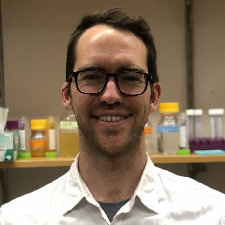J. Scott P. McCain, PhD
J. Scott P. McCain, PhD

One of the defining features of cancerous cells is that they divide quickly. The composition of the human microbiome is also due to differences in how quickly microbes grow. How do we determine how fast cells are growing in their natural environments? Is there a way to take a ‘snapshot’ and turn it into a ‘growth rate’? More fundamentally, what limits these growth rates? These are the fundamental problems Dr. McCain is studying. He is using computational simulations, machine learning, and experiments with bacteria to identify a common set of transcriptomic and proteomic biomarkers for estimating growth rates. In addition, he is examining the biophysics of growth limitation as a function of organism size. This work will provide fundamental insights into the use of gene expression data to inform and quantify key processes, like growth rate. Dr. McCain received his MSc and PhD from Dalhousie University and his BSc from the University of Western Ontario.
